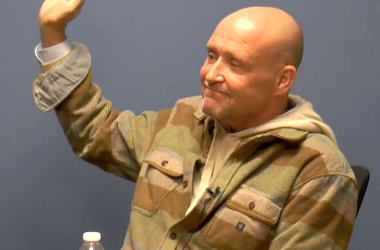An Oregon legislative committee declined to rule Wednesday on whether Democratic nominee for governor Tina Kotek created a hostile work environment when she was speaker of the Oregon House.
An independent investigation into allegations that Kotek threatened and bullied former state Rep. Diego Hernandez found insufficient evidence. Wednesday’s hearing of the House Conduct Committee was intended to hear testimony from Hernandez and witnesses and decide whether to accept the report’s findings. Legislators postponed the decision to an unscheduled future meeting, saying they didn’t have enough time.
Hernandez, also a Democrat, alleged that Kotek threatened his personal livelihood, career and bills because he didn’t vote with her on 2019 legislation cutting employee benefits.
Melissa Healy, an attorney with Portland-based Stoel Rives hired to conduct the investigation, found that Hernandez’s account was probably right – but that it didn’t mean Kotek broke legislative rules.
“This kind of conversation could be inappropriate in another workplace, but this is the Legislature and it’s not a normal workplace,” Healy said.
Hernandez told the committee that Healy’s conclusion sets a dangerous precedent – that it’s OK for people to feel unsafe, bullied, afraid and controlled at work because they work in politics.
“The investigator with this report is attempting to normalize as part of the legislative workplace culture that leadership is allowed to use bullying threats, intimidation, yelling, outbursts and rage in order to get you to conform to her rule because the rules that they wrote for themselves give them that power,” he said.
The meeting was held the day county clerks began mailing ballots to voters, who will decide over the next three weeks whether to elect Kotek to the state’s top job. Her Republican opponent, Christine Drazan, has featured headlines about the complaint in campaign ads.
Committee members heard from Hernandez and three witnesses on his behalf: two former state representatives and a current state senator. Kotek did not speak to the committee, but she sent an email to committee chairs in early October asking it to affirm the investigator’s findings.
“This report is long overdue, but I’m satisfied by the clear conclusion that these were baseless accusations,” Kotek wrote.
She urged lawmakers to consider reforms to prevent legislators from politicizing the complaint process. Hernandez filed his complaint in January 2021, 20 months after that vote. When he filed the complaint, an investigator looking into multiple allegations of sexual misconduct against Hernandez had just concluded that Hernandez created a hostile work environment for women.
“His complaint against me was a blatant attempt to distract people from his own harmful behavior, and it undermines the true goal of the Conduct Committee, which is to make the Capitol a safe and welcoming place for everyone to work,” Kotek wrote.
‘Physical symptoms of pain’
An emotional Hernandez told the committee that stress from working under Kotek took a toll on his body. He said he was rushed to the hospital with gallstones he attributes to his stress, and he has been diagnosed with complex post-traumatic stress disorder, an anxiety disorder that stems from repeated trauma.
“I had physical symptoms of pain, sweating and nausea,” he said. “I had panic attacks and anxiety, I had difficulty concentrating on daily tasks. I felt emotionally numb, like I was free falling. I wasn’t sleeping. I had trouble maintaining personal relationships, and it was hard to look at the future and see hope for me.”
He attempted suicide over the summer, Willamette Week reported, and Healy didn’t finish her report until a week after Hernandez told her of that attempt. Former state Rep. Brian Clem, who spoke to the committee on Hernandez’s behalf, confirmed the attempt.
Hernandez also submitted written testimony, including screenshots of texts and emails. He asked that it be shared with the public, but legislative staff declined to post it, saying redactions may be needed.
Clem, a Democrat who represented Salem until December 2021, told legislators he was nervous to talk to them. He video-called in from South Korea, where he said he’s working on a project that could bring hundreds of jobs to Oregon – if the state’s next governor approves permits.
Clem advocated for finishing the investigation well before the upcoming election. He said he didn’t like Hernandez when they started working together, but they worked closely and he witnessed Hernandez struggling with depression. Clem also urged one of the women who alleged inappropriate behavior by Hernandez to report that behavior, and he said friends have to hold each other accountable.
He told legislators that they should be able to vote as they feel is right for their constituents without retaliation.
“The notion that the Legislature isn’t a regular workplace for legislators is not OK,” he said. “You are humans too. You deserve the protections.”
Matt Wand, a former Republican legislator who served one term from 2011-13, told the committee he has known Hernandez since Hernandez was a teenager. The two had a falling-out over political differences years ago, and Wand got back in touch after reading about Hernandez in the newspaper, he said.
Wand said Kotek crossed a line by threatening Hernandez’s career. Legislators can horse-trade over bills, Wand said, but they shouldn’t threaten each other’s personal lives.
“The House under Speaker Kotek’s leadership was broken,” Wand said. “It was toxic. And everybody knew it.”
Sen. Dallas Heard, R-Roseburg, said he and Hernandez couldn’t be more different on paper: Hernandez is Latino, from urban Portland and has been called far-left; Heard is a white man from rural Oregon and has been called far-right. But they became friends, and Heard said he was shocked when he walked in on Kotek berating Hernandez.
“I saw my former colleague, Representative Diego Hernandez, go from being a spirited, loving, wonderful champion for the little people, the underrepresented, the political minority, to still being a loving, caring good person but someone who is very broken, and I can share in a lot of the same anxieties,” Heard said.
And in a letter to the committee, state Rep. Janelle Bynum, D-Clackamas, expressed dismay that information from her interviews with investigators weren’t included in the final report.
“If for some reason that information was lost or omitted, I feel comfortable asserting that our system has failed us,” Bynum wrote. “We have failed in our aspirations to create a productive lawmaking environment centered on democracy and inclusion.”
She said she was most troubled by the long delay: legislative rules say investigations should be completed within 84 days, while Hernandez has been waiting nearly two years. Healy attributed those delays to witness availability, saying that at times it felt like people weren’t interested in speaking with her.
Rep. Raquel Moore-Green, R-Salem and the committee’s acting co-chair, questioned whether Healy or Stoel Rives had any conflicts of interest with Kotek. Stoel Rives made $2,500 to all three candidates in the governor’s race.
Oregon Capital Chronicle is part of States Newsroom, a network of news bureaus supported by grants and a coalition of donors as a 501c(3) public charity. Oregon Capital Chronicle maintains editorial independence. Contact Editor Lynne Terry for questions: [email protected]. Follow Oregon Capital Chronicle on Facebook and Twitter.
STORY TIP OR IDEA? Send an email to Salem Reporter’s news team: [email protected].

Julia Shumway is deputy editor of Oregon Capital Chronicle and has reported on government and politics in Iowa and Nebraska, spent time at the Bend Bulletin and most recently was a legislative reporter for the Arizona Capitol Times in Phoenix. An award-winning journalist, Julia most recently reported on the tangled efforts to audit the presidential results in Arizona.









